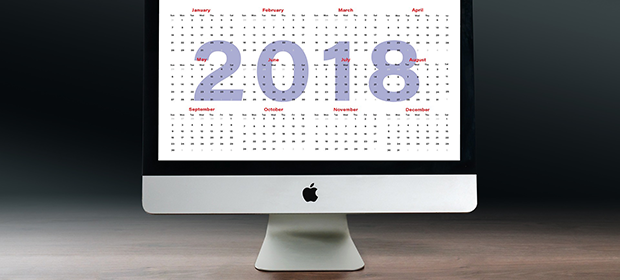It may seem like the end of the current tax year is a long way off but with next week’s Autumn Budget, the Christmas holidays and self-assessment tax returns all on the horizon, 5 months can fly by in the blink of an eye.

Moreover, we at Warr & Co understand the importance of advance preparation – especially when it comes to positioning yourself correctly for the upcoming 2018/19 tax changes.
Starting your preparations now can help to ensure you are best positioned for financial growth in the 2018/19 tax year.
Preparing for the dividend tax increase
The tax-free dividend allowance will fall from £5,000 to just £2,000 from 6 April 2018.
This will result in a tax increase of either £225, £975 or £1,143 depending on whether you’re a basic (£3,000 x 7.5% basic rate), higher rate (£3,000 x 32.5%) or additional rate taxpayer (£3,000 x 38.1%).
Thankfully, there are measures you can take to mitigate the impact of the reduction.
Using ISAs
Ensure you invest the maximum £20,000 into a tax-free stocks and shares ISA before the end of the tax year.
At the beginning of the 2018/19 tax year you will be able to invest another £20,000: that’s £40,000 worth of assets you can receive tax-free income on.
Married couples or individuals in civil partnerships can benefit further by placing a maximum of £80,000 into ISAs during the 2017/18 and 2018/19 tax years.
Transferring to a spouse or civil partner
Married couples and civil partners have an advantage in that they will have a combined dividend allowance of £4,000 (£2,000 for each person).
If your other half has not used all of their dividend allowance, you should consider transferring some of your assets into their ownership.
Alternative investment schemes: VCTs, EIS and SEIS
You may also want to think about other tax-efficient investment options.
Investment schemes, such as venture capital trusts (VCTs), the Enterprise Investment Scheme (EIS) and the Seed Enterprise Investment Scheme (SEIS), provide attractive tax incentives in return for investment in smaller, higher risk companies.
Dividends earned on investments in VCTs, for example, are tax-free provided you invest less than £200,000 in a single tax year.
Contact us for information about investing in these schemes.
If you’re a director of a company you should think about increasing either the value or amount of dividend payments before the start of the 2018/19 tax year. Speak to one of our advisers for more information.
Contact us
Warr & Co accountants and tax advisers can help you position your personal finances ahead of the 2018/19 tax year.
Contact us or call 0161 477 6789 to speak to one of our advisers.

 © 2019 Warr & Co Chartered Accountants. Warr & Co Chartered Accountants is a member of The Institute of Chartered Accountants in England & Wales (ICAEW). Whilst the information detailed here is updated regularly to ensure it remains factually correct, it does not in any way constitute specific advice and no responsibility shall be accepted for any actions taken directly as a consequence of reading it. If you would like to discuss any of the points raised and / or engage our services in providing advice specific to your personal circumstances, please feel free to contact any one of the partners on 0161 477 6789 or contact us via our website forms. Warr & Co Chartered Accountants are registered to carry our audit work in the UK, our audit registration number is C002961684, for more information please visit www.auditregister.org.uk.
© 2019 Warr & Co Chartered Accountants. Warr & Co Chartered Accountants is a member of The Institute of Chartered Accountants in England & Wales (ICAEW). Whilst the information detailed here is updated regularly to ensure it remains factually correct, it does not in any way constitute specific advice and no responsibility shall be accepted for any actions taken directly as a consequence of reading it. If you would like to discuss any of the points raised and / or engage our services in providing advice specific to your personal circumstances, please feel free to contact any one of the partners on 0161 477 6789 or contact us via our website forms. Warr & Co Chartered Accountants are registered to carry our audit work in the UK, our audit registration number is C002961684, for more information please visit www.auditregister.org.uk.